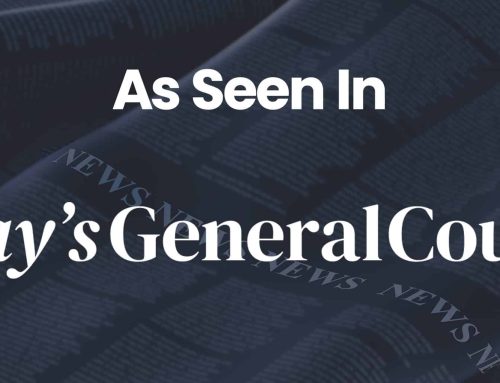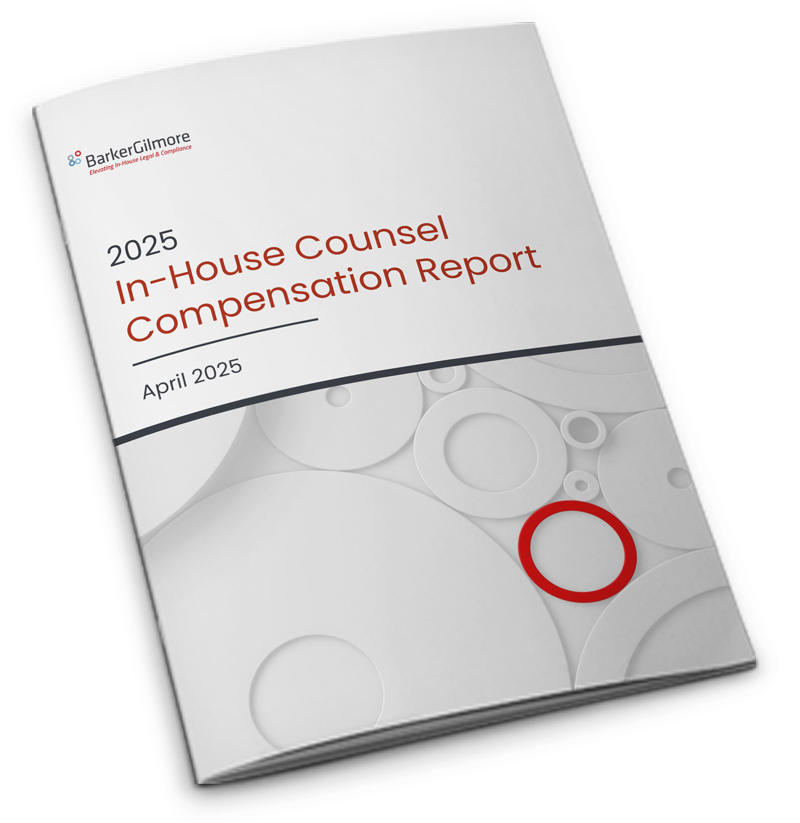Strategic Advisor & Executive Coach Maureen Brundage is joined by Sunita Holzer, Executive Vice President and Chief Human Resources Officer, Realogy Holdings Corp., and BarkerGilmore Co-Founder and Partner, John Gilmore, to provide helpful dos and don’ts for finding your next position. Their insights on the impact of COVID-19 on the job market will give you a clear understanding of the current employment situation. They also share tips about how you can enhance your visibility to increase the chances of your next employer finding you.
Below are highlights from the webinar. To learn more, the video recording, slide presentation, and podcast are available on this page.
Any discussion of employment and job search issues in a year of unprecedented business challenges certainly must begin with addressing the elephant in the (virtual) room. Employment in some industries has been severely impacted including job freezes and layoffs, yet many companies are healthy and hiring. Here are tips to make sure that you are prepared for employment opportunities right now even if you are not actively seeking a new position.
“There’s been an enormous amount of activity, especially in functional areas like legal.”
— Sunita Holzer
Recent discussions with General Counsel and in-house candidates about their thoughts on the job market indicate that although the market slowed in the spring, it is currently very active. Two additional factors have come into play as people work remotely. First, the interview process is faster and more efficient. And second, many companies have realized that they don’t need all of their talent to be in one central location. As a result, executives are more open to their teams working from anywhere in the United States via video connection and understand that employees can be very successful and productive in a remote environment. When the pandemic winds down, however, some will expect their employees to be on the ground and physically relocate, while others will remain open to employees working from home for the long-term. Job postings usually clarify up-front the remote or physical location requirements, but it’s still important to have the mindset that you are willing to relocate when you are interviewing.
“The best time to look for a job or to be open-minded to opportunities is when you don’t need to be looking. The majority of people we place are in that situation: not actively looking but ready to listen to opportunities.”
— John Gilmore
Even if you are not actively looking, it’s essential to periodically step back and think about your career:
- Think about what you are currently doing and what you want to do.
- What are your career objectives? Are you on the right path to achieve those objectives?
- Make an honest self-assessment of the skills you have and the skills you may still need to acquire.
- In reality, the pandemic may have added to your skill base. You now have the ability to work and manage remotely, have become more agile, and may know how to better manage crises.
This is a good time to get a certification. And, if you can, try to acquire hands-on experience since this is what matters to hiring managers. If you’re considering a move, a good place to begin is in your own company, whether it’s within your department or another. Moving to the business side from your position in legal may be possible in your company, while a lateral move to a new organization could allow you to gain more diverse experience and add to your skill set, critical if your aspirations are to become a General Counsel in the future.
“There’s a saying that really is true: finding a job is a full-time job. If you are serious about finding a new job, build time to spend on it into your daily calendar and consider developing an action or marketing plan to guide you.”
— Maureen Brundage
A personal marketing plan can help you effectively and efficiently focus your job search so that you make every minute that you spend on the search really count. Set your goals and consider developing an action plan with these elements:
- Your professional objectives
- What roles you are interested in
- A brief positioning statement
- Your areas of expertise
- Business needs that you can address
- Your major accomplishments
- What geography will work for you
- What industries you want to focus on
- A list of companies in target industries and geographic areas
Keep in mind that this plan can be for your eyes only or you can share it with others to get their input. The plan can serve as an impetus to ask others to comment on your skills or to suggest other companies that may be good targets for your search. In addition, it’s essential to have an updated resume ready, even if you’re not actively searching for a new job. You never know when opportunity will knock. Your resume should be a brief and simple PDF (two or three pages), highlight your most recent and relevant skills, emphasize specific accomplishments, include key words from job postings, and be free of any typos. Consider having a friend or trusted colleague review it as well.
“Tap LinkedIn for finding career opportunities. Whether you’re looking for a new role or just trying to expand your professional network.”
— Charlotte Cowles, New York Times, 10.31.2020
LinkedIn is a great way to reach a broad community and mine your contacts and your talent. It allows you to tell a different story than your resume. Most organizations that are in a hiring process will search for you through LinkedIn. They will either look at your profile and request your resume, or look at it after they have received your resume, so it should not be a repeat of your resume. You can list some of your recent speeches or presentations, for example, or your involvement with nonprofit organizations. You can comment on the postings of others and reference a conference you recently attended, while passing on a few tips from that conference that get tagged with you. Focus on these details to enhance your LinkedIn visibility:
- Photo: Get a recent professional headshot
- Summary: Describe what you do and highlight your strengths
- Skills: Include at least 5
- Endorsements: Give and get
- Incorporate keywords from postings of jobs you want in your summary statement and role descriptions so you show up in searches
Consider whether to upload your resume directly to LinkedIn. If you are actively looking because you need a new job, then it won’t hurt to include it. Otherwise, if you develop a high-quality LinkedIn page, recruiters from inside or outside the company will contact you. Individuals who don’t currently need a job because they’re doing such a great job with their current employer are attractive to recruiters, so it’s best to include your resume on LinkedIn only if you are in transition mode.
“People who are short-sighted and claim that they’re happy and not interested in looking at a new opportunity will never know what they could be missing. Do the work and take advantage of our tips. The worst thing that can happen is that you will need to say, “I’m not interested in that opportunity.” The upside, however, could be that you take a major step forward on your career path.”
— John Gilmore
Learn even more from the Q & As presented during the webinar.
Attendees submitted questions to our distinguished panel and their answers provide additional information on effectively preparing for your next job.
General
1. Do you believe in certain industries (like tech) companies may put themselves at a long-term competitive disadvantage in competing for talent if they require employees to report to an office 5 days per week in a post-Covid world?
Not being flexible will likely adversely affect some companies, but it will depend on the company, the industry, where it is located, and what its competitors are doing. Also, some employees, in fact, prefer to work in an office than at home; so, not every prospective employee will view it as a showstopper.
2. If you started with a new company in 2020 (and are very happy), how long should you wait before being open to other opportunities (assuming that you do not have a history of job hopping).
There is no set time frame. It will depend upon many factors, e.g., the nature of your current role, whether you have had sufficient time to develop relevant skills and experience to increase your marketability, the identity of the company and its industry, as well as the benefits of the new opportunity that you are contacted about.
3. Any tips for those seeking a CCO position, not a GC position?
The suggestions that were provided in the webinar would be equally applicable to a CCO position or any other position.
4. Are you aware of good “GC Bootcamp” programs?
BarkerGilmore’s Strategic Advisors and Coaches provide coaching services to help GCs and aspiring GCs, which are tailored to the individuals’ needs. There are various programs that are offered by other organizations, but the advice provided may be more generic. Talking to prior attendees of such programs may be advisable.
Resumes
1. I’ve been told that a resume in PDF format isn’t compatible with the ATS tracking software, and that they should be sent in Word. How do you tailor a resume for automated resume review systems?
You should submit your resume in the format directed. If the software requires that your resume be submitted in Word, then you should do so. If, however, you are emailing someone a copy of your resume, it is better to use a PDF format.
2. Should the resume be similar to or different from the LinkedIn page?
Your resume obviously should be consistent with your LinkedIn profile, but they should not be the same. Your LinkedIn profile should include your picture; your resume should not. A LinkedIn profile is more informal, and you can use more colorful wording than you would perhaps use in a resume. Although some profile items have word limits, you are not as space constrained as in a resume. You can even include videos or other supplemental information.
3. What are your thoughts on having supplemental documents such as a list of transactional experience, litigation experience, etc.?
Having supplemental documents with more detailed information about, for example, transactions you have worked on or litigation you have been involved with, is a good idea. Keeping these up to date is advisable in case you are asked to provide them as part of the interview process.
4. What are your thoughts about having a summary at the top of a resume?
It is helpful to have a summary at the top of the resume that highlights your skills and relevant experience and that perhaps differentiates you from other candidates.
5. For speaking engagements and publications, would an Appendix be an option, making a 3rd page? Or just a reference that there are such speaking and writing engagements.
You could consider including in your resume select speaking engagements and publications if space permits and if they help demonstrate your expertise in an area or skillset that is relevant to your job search. A complete list could be included in a supplemental document that could be provided upon request.
6. Any suggestions as to font size?
Generally, 12 points should be used for the text. A slightly larger size could be used for headings. Anything less than 10 points should not be used.
7. Are companies really using resumes these days? I feel like everyone is looking on LinkedIn.
All companies will ask for a resume or bio to have on file and share with the interview team. Not only does the resume indicate credentials and experience but demonstrates writing ability and the strategic value you can bring to the new employer.
LinkedIn is mostly important for being found. It also is a place to share a professional picture and tell a bigger story about who you are via endorsements, testimonials, skills, etc. Be cautioned that anything on your LinkedIn bio that is unprofessional will hurt you. Any typos or misrepresentation on the LinkedIn bio will immediately cause a company to reject your candidacy.
Networking
1. Any tips for someone who is not good at networking?
Most people believe themselves to be introverts and, therefore, they do not like networking and feel that they are not good at it. You just have to push yourself to do it and the more you do it, the easier it will become. But set “success” goals that are reasonable. For example, if you are at a conference or reception, set as your goal for the evening, e.g., exchanging contact information with two new people. Or begin by reaching out to those you already know, rather than someone you have never met. Your success with a call with a prior acquaintance may make you more confidant to expand your networking more broadly.
2. Any tips on leveraging your network while still maintaining some confidentiality so your current employer / board doesn’t become aware of your search?
In reaching out to your network, you do not need to tell everyone that you are looking for a new job. Instead, you can ask for general career advice. In the course of that discussion, it may be appropriate to indicate that, although you are happy where you are, you are always open to hearing about other opportunities, whether for yourself or others you may know. Obviously, there may be some in your network who will keep your job search interest confidential and who you can be more open with.
Interviewing
1. How do you answer the question, “Why are you looking to leave your current employer,” if telling the truth sounds like “criticism?” You do not want to talk negatively about an employer, but what if it was a negative work environment and you are looking to leave for that reason?
Stay positive. When asked “why you are looking to leave the company”, the answer needs to focus on why the new position and company are attractive to you. Our recommendation is to let the interviewer know you are not actively seeking something new, but open to opportunities that bring career growth. Next, go into what makes the new opportunity and the company attractive to you. Talk about the culture, new company track record and/or ranking in the industry, your passion for the industry and/or particular work, and how the new position would suit you.
2. For virtual interviews, is the dress code any different? No ties for men?
From the waist up, it is best to dress as you would dress for an in-person interview. Think about what will look good via a camera (e.g., solid colors vs. wild patterns). Your attire can be adjusted for the culture of the organization. So, if it is a Silicon Valley startup, it would be best not to wear the tie.
3. What’s the best way to learn about a company’s culture? Website?
The best way the learn about a company’s culture is to talk to people who work there and who have worked there. The company’s website, press releases, etc. should give you some indication of what is important to a company, but it is unlikely that a company will publish something that would put its culture in a bad light.
Job Postings / Recruiters
1. If a role is not advertised as remote, should you apply anyway? Assuming you do not want to move. Wondering how much flexibility you are seeing.
Many companies are more flexible about remote working. But whether a job will continue to be fully remote post-pandemic may depend on the level of the job. If the job posting specifies a location and does not say that working remotely is an option, it is likely that full-time remote working is not contemplated long term. You could apply and, if you are contacted, ask about remote working before going too far down the interview process if the location is a nonstarter for you. While a company might go into a search intending for the person to ultimately be full time onsite, if someone with special skills and abilities comes along, they might decide to change their thinking.
2. If a job is listed on a job board and it names the employer, are you better off applying through the company directly or through the job board?
If the If the company has posted the job on both its website and on a job board, it may not matter which you apply through. If the job board posting is by a recruiter, whether contingent or retained, it may be better to apply through them. The recruiter may have valuable insight to requirements, compensation, benefits, culture, and the hiring manager. If the recruiter has an exclusive relationship with the company, most times they can immediately get the attention of the company and help prepare you for the meetings. Many times, representatives from the company are uncomfortable talking about money. It is a shame to invest a lot of time going through interviews only to find you are out of the ballpark when it comes to compensation.
Maureen Brundage, John Gilmore, and our team of professionals are happy to help accelerate the initiatives that you’re already pursuing or to supplement your current strategic thinking to help you realize your vision. Please reach out if you or your organization may benefit from our recruiting, leadership development and coaching, or legal and compliance department consulting.
Connect with a legal recruiting advisor
* indicates required fields



